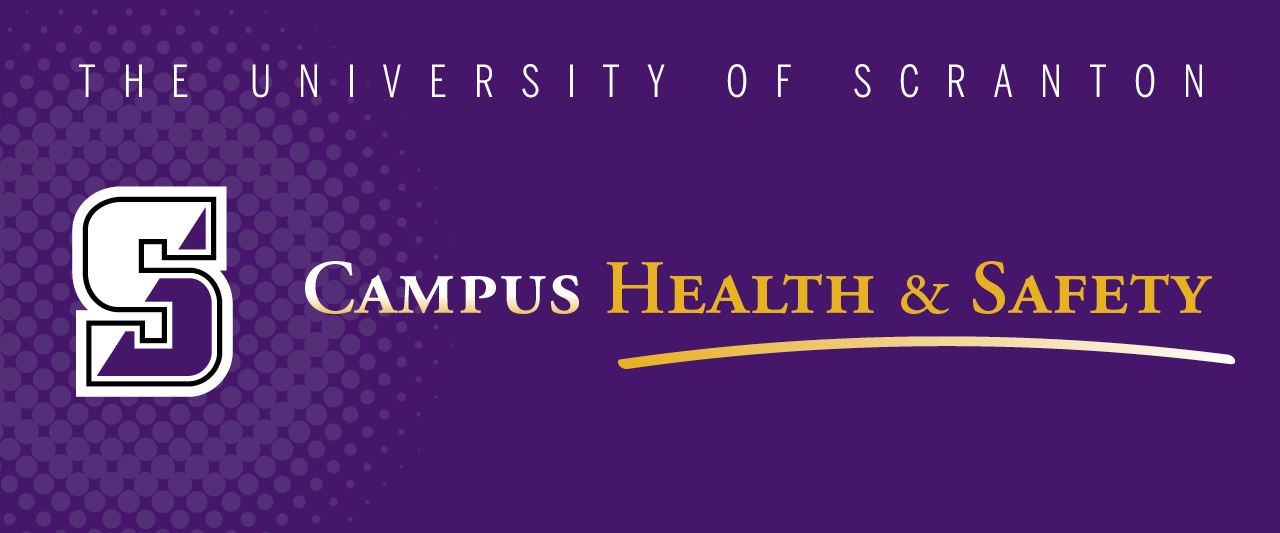Introduction
The University of Scranton is committed to providing a safe and healthy campus environment that supports and sustains the singularity of the Scranton experience. The University will assess the impact of health and safety issues and implement appropriate measures on campus as warranted. The information below relates to the University's continued response to the SARS Co-V2 Pandemic.
Vaccination
Grounded in our Catholic and Jesuit mission, and in a commitment to community that defines and distinguishes us, our Campus Health and Safety Measures are grounded in a shared responsibility to keep each other safe. Vaccination against the SARS-CoV-2 virus is currently the best way to ensure the health and safety of our communities. The University recommends strongly that all members of our community, especially individuals with health conditions that place them at greater risk of serious illness, stay up to date with the current COVID-19 vaccination.
Masks
Instructors and employees with disabilities who wish to require high-quality masks (e.g., N95) be worn in instructional spaces (e.g., classrooms, laboratories) or workspaces for medical reasons must complete the necessary paperwork for a reasonable accommodation available from the Office of Institutional Compliance and Title IX website.
Students who need medical accommodations should contact the Office of Student Support & Success (OSSS) for academic accommodation and the Office of Institutional Compliance and Title IX for non-academic accommodation.
If an individual chooses to wear a mask, high-quality masks (e.g., N95, KN95 or KF94) are recommended. These follow guidance from the CDC. All masks should be well-fitted and must cover both the mouth and nose.
Note: Individuals may ask , but not require , guests in personal spaces (i.e. offices, residence hall rooms , research laboratories ) to wear a mask .
Mask Availability
- Students can secure high-quality masks from Student Health Services, Printing and Mailing facility on Jefferson Avenue, and from their respective deans' offices, or from University Police in the evening hours.
- Departments can secure masks and other personal protective equipment by completing an online ordering form and emailing it to the Purchasing Department. Departments should monitor their use of PPE and request additional supplies 7-10 days before running out.
Preventing the Spread of Respiratory Viruses When You're Sick
Members of the campus community who test positive for COVID-19 or other common respiratory viral illnesses such as flu and RSV should follow the guidance of the U.S. Centers for Disease Control & Prevention.
- Staff and Administrators
- Staff and administrators who are not able to work on campus due to illness should follow the protocols in place for their department or division and the guidelines included in the Staff and Administrators Handbook available through The Office of Human Resources website.
- Students
- Students can find additional information on the Student Health Services website.
- Students requesting absence notifications due to extended illness must present medical documentation from a healthcare provider to the Dean of Students by emailing studentlife@scranton.edu. The Dean of Students Office will work with the appropriate academic college regarding absence notification.
- Faculty
- Faculty who are not able to teach due to illness should follow the Faculty Absence Policy as found on the Academic Policy Handbook page of the Office of the Provost.






